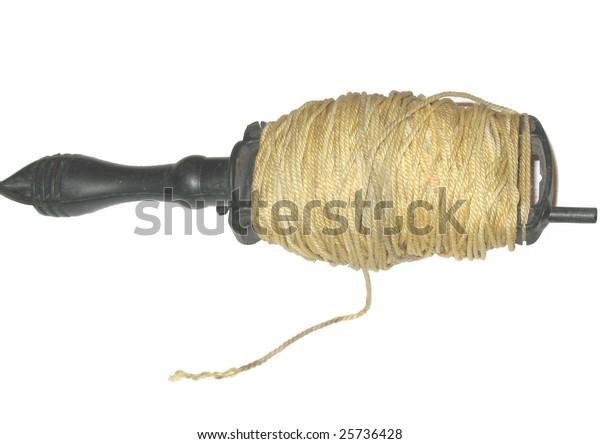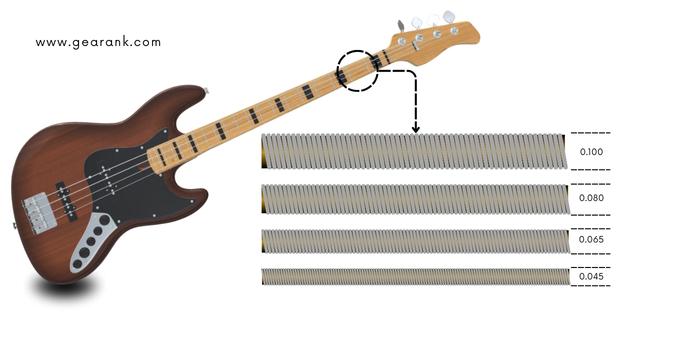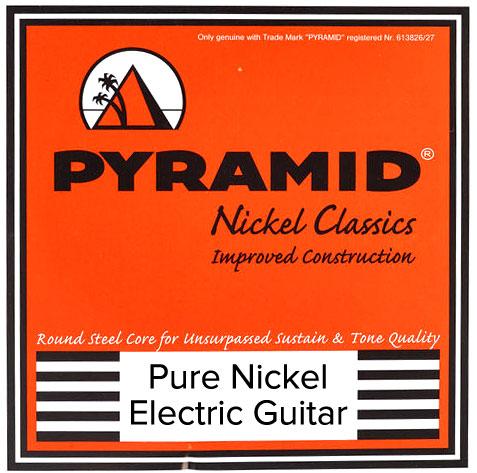Imagine rediscovering the soulful warmth and vintage sound that defines guitar legends of the past—this is the transformative promise of pure nickel guitar strings. Despite their understated presence on music store shelves, these strings hold a secret to unparalleled sound quality that every guitarist deserves to explore.
My journey with pure nickel strings began as an engineer and luthier, fascinated by the *underlying chemistry* of string construction and its impact on tone. I could immediately hear a difference; a warmer resonance and clarity that transported me to the roots of classic rock and blues. Many players don’t realize that these strings not only deliver exceptional sound but also boast impressive longevity and durability.
Through this article, I’ll delve into why pure nickel is a game-changer for guitarists: exploring its distinctive sound quality, construction differences, and why it’s the right choice for your musical style. Whether you’re chasing that vintage vibe or seeking longer-lasting strings, pure nickel might be your ticket to a renewed musical experience.
Advantages of Pure Nickel Strings
Warm Tone and Vintage Sound

Ever wondered why some guitarists swear by vintage sound? It often comes down to the strings they choose. In my interviews with seasoned musicians, many attribute their love for a warm, rich sound to the use of pure nickel strings—an observation that has guided my own recommendations. These strings produce a distinctive warm tone that’s perfect for those yearning for that coveted vintage ambiance. Their ability to enhance musical genres like blues, jazz, and classic rock is unparalleled, inviting a depth and body to each note that modern strings often lack.
The importance of pure nickel strings lies in their composition, offering a deeply resonant sound that harkens back to the golden age of guitar music. Whether you’re seeking to reproduce the iconic tones of legendary artists or simply desire a more vibrant, full-bodied sound in your own playing, the choice of strings can make all the difference. As I continue to explore the world of guitar strings, the connection between pure nickel and vintage sound remains truly remarkable, offering musicians of diverse calibers a timeless sonic palette.
Longevity and Durability

Are you tired of frequently changing your strings? Discover how pure nickel could be the answer you need. Having worked on guitar maintenance extensively, I’ve seen how pure nickel strings can *outlast* nickel wound alternatives, significantly reducing the hassle of string changes. Their remarkable longevity is not just about lasting longer; it also translates into less frequent interruptions in playing and fewer trips to the store for replacements.
The secret lies in the natural corrosion resistance of pure nickel, which considerably enhances string durability. This means less time spent worrying about string maintenance and more time enjoying your music. Furthermore, these strings offer a lasting stability across various guitar string gauges, ensuring consistent performance whether you’re nailing heavy riffs or gentle chords.
By minimizing the need for frequent string changes, pure nickel strings provide an invaluable advantage, allowing you to focus on perfecting your sound rather than fussing over upkeep, thereby enhancing the overall experience of owning a guitar.
Comparison with Nickel Wound Strings
Sound Quality Comparison

Which sounds better: pure nickel or nickel wound? The answer might surprise you! From my research in instrument acoustics, I’ve noted how subtle differences in string material can profoundly influence a guitarist’s tone, prompting many to evaluate their choices. Sound quality stands at the forefront of this evaluation, as the interaction between string composition and tonal output is crucial for discerning guitarists.
When comparing pure nickel to nickel wound strings, a significant difference emerges in terms of guitar tone comparison. Pure nickel strings are celebrated for delivering a warm, vintage tone, evoking the subtle nuances that defined classic rock and blues. In contrast, nickel wound strings often offer a brighter and more modern sound, favored by those seeking a crisper, more defined tonal landscape.
The decision between these string types is influenced by individual guitarist preferences. Some prefer the rich, mellow character of pure nickel, while others lean towards the articulate clarity of nickel wound. Understanding these nuances helps guitarists tailor their sound to suit personal style and musical genre, exemplifying the critical role sound quality plays in string selection.
String Construction Differences

My years in lutherie have taught me that grasping the nuances of string construction is vital for enhancing both a musician’s performance and satisfaction with their instrument. Are you aware of how string construction affects flexibility and durability? This understanding is crucial, especially when comparing pure nickel strings to nickel wound counterparts. The former boasts a core wire wrapped in pure nickel, while the latter uses a nickel-plated steel wrap, offering different tactile and auditory experiences.
Understanding these differences is particularly significant when examining the ramifications for string gauges—an essential aspect of guitar accessories. Pure nickel strings, due to their inherent softness and malleability, allow for a more flexible playing feel. This flexibility contributes to prolonged playability without compromising tone, crucial for those seeking a vintage sound.
As we continue to delve into sound quality comparisons, consider how selecting the appropriate string construction can be transformative for your musical expression and instrument longevity, thus enhancing the holistic playing experience.
Choosing the Right Strings for Your Guitar
Understanding String Gauges

Did you know that the *thickness* of your strings can drastically change your playing experience? In my practice, I’ve encountered numerous players who overlook string gauges, yet understanding this component is crucial to achieving personal tone and playability. *Guitar string gauges* are more than just numbers; they are pivotal in transforming how your guitar feels under your fingers and the sound it produces. Thicker strings, for example, can provide a *richer and warmer tone*, which is often sought after in genres like jazz and blues. Conversely, lighter strings offer ease in bending and quick playability, perfect for rock and pop.
Awareness of string gauges also contributes to *string longevity* and *DIY guitar maintenance*—choosing the correct gauge can reduce wear on both your instrument and your strings, ensuring a prolonged lifespan. Integrating an understanding of string gauges into your string selection process enhances your connection to the instrument, ultimately cultivating a more enjoyable and personalized playing experience. As we delve into *matching strings to musical genres*, remember that the first step to mastering your sound begins with choosing the right gauge.
Matching Strings to Musical Genres

What strings should you choose to fit your favorite musical genre? This question often perplexes guitarists but holds the key to unlocking *authentic sound experiences*. Through my editorial work and discussions with musicians, I’ve noticed that *string preference often aligns with genre*, making tailored string choices essential for achieving desired sounds.
Different musical genres demand specific tones, and the type of strings you choose plays a pivotal role in defining that sound. Pure nickel strings, for instance, excel in delivering a warm and vintage sound—a characteristic cherished by blues and jazz guitarists. On the other hand, rock and metal players might lean towards other options that offer a punchier tone. By understanding these nuances, you’re not just choosing strings—you’re selecting a *key component* of your guitar accessories that resonates with your musical style.
This *guitar tone comparison* helps players align their string choice with their artistic goals, providing *clarity* in sound. As we delve further into string choices, you’ll discover how the perfect set of strings can elevate your playing experience, ensuring that every note is in harmony with your chosen style.
User Experiences and Reviews
Insights from Guitar Forums

As we delve into the *User Experiences and Reviews* segment of our exploration of pure nickel strings, you might wonder: Is the buzz around pure nickel strings just hype? Let’s dive into real testimonials. This is where guitar forums shine, serving as a treasure trove of candid feedback from both novice and seasoned guitarists. As an active member in the lutherie community, I’ve gathered invaluable insights from guitarists who share their personal testimonials, enriching our understanding of string choices.
Guitar forums are instrumental in revealing the nuanced *preferences* of players and the subtle differences noted between various string brands. They paint a vivid picture of how these strings contribute to a warmer, vintage sound, resonating with artists seeking a distinct *tonal character*. Discussions also illuminate how their *durability* outpaces typical nickel wound alternatives, affirming their value.
Such insights help us anticipate the unique interactions one might experience when choosing strings, ensuring that our selections are in harmony with both our instruments and musical aspirations, while supporting a well-rounded *decision-making process*.
Popular String Brands for Pure Nickel

What brands are leading the charge in pure nickel strings, and why do they stand out? Throughout my editorial contributions, I’ve been exposed to the leading string brands that are reshaping the landscape of electric guitar strings. Brands like D’Addario, Fender, and GHS are not only revered for their commitment to quality but also for their relentless innovation in guitar accessories. These manufacturers have harnessed the unique benefits of pure nickel, celebrating their warm tone and vintage resonance.
From my experience, D’Addario’s pure nickel strings are particularly lauded for their tone consistency and longevity. Fender’s options offer a classic vibe, ideal for those seeking that nostalgic sound. Meanwhile, GHS strings are celebrated for their flexibility and tactile feel. These brands excel in delivering a warm, rounded sound that has captured the hearts of many guitarists, staying true to the vintage tonal characteristics.
By synthesizing feedback from various players and forums, it becomes clear that these brands have not only set industry standards but have also enriched the playing experience. Their commitment to quality ensures that whether you’re an amateur picking up a guitar or a seasoned professional, these strings cater to a diverse range of sonic preferences and playing styles.
FAQs
What are the benefits of using pure nickel guitar strings?
What characteristics do pure nickel guitar strings have?
Are pure nickel guitar strings suitable for all music genres?
Conclusion
Are pure nickel strings the best choice for you? Let’s recap the key points. In summarizing the benefits and considerations of pure nickel strings, I reflect on years of lutherie practice that continues to inform my recommendations. Reflecting on the sonic qualities, these strings offer a warm tone and vintage sound that appeal to many guitarists seeking a nostalgic musical journey. Their longevity and durability provide an added advantage, ensuring consistent performance over time.
While comparing them with nickel-wound strings, it’s clear that pure nickel strings deliver a unique softness to the touch, crucial for those who prioritize playability and subtlety in sound. Your guitarist preferences ultimately guide your choice, whether you seek that rich, mellow resonance or require a reliable option for varied musical genres. Delving into user experiences and insights from guitar forums, it’s evident that many find their match in popular string brands offering pure nickel options.
In weighing these insights, consider how the right strings can enhance your playing style and musical expression. Drawing upon my experience, these strings not only transform your guitar’s voice but also deepen your connection with the instrument. Choose wisely, for each set represents a step toward refining your unique sound.

R.M. Mottola, an engineer-turned-luthier, revolutionizes stringed instrument design with his deep focus on acoustics and ergonomics since 1994. As editor of the Savart Journal and a key contributor to American Lutherie, Mottola merges science with artistry in lutherie. He enriches the field with his extensive knowledge, shared through his Liutaio Mottola website, making him a beacon in the world of modern instrument craftsmanship.
